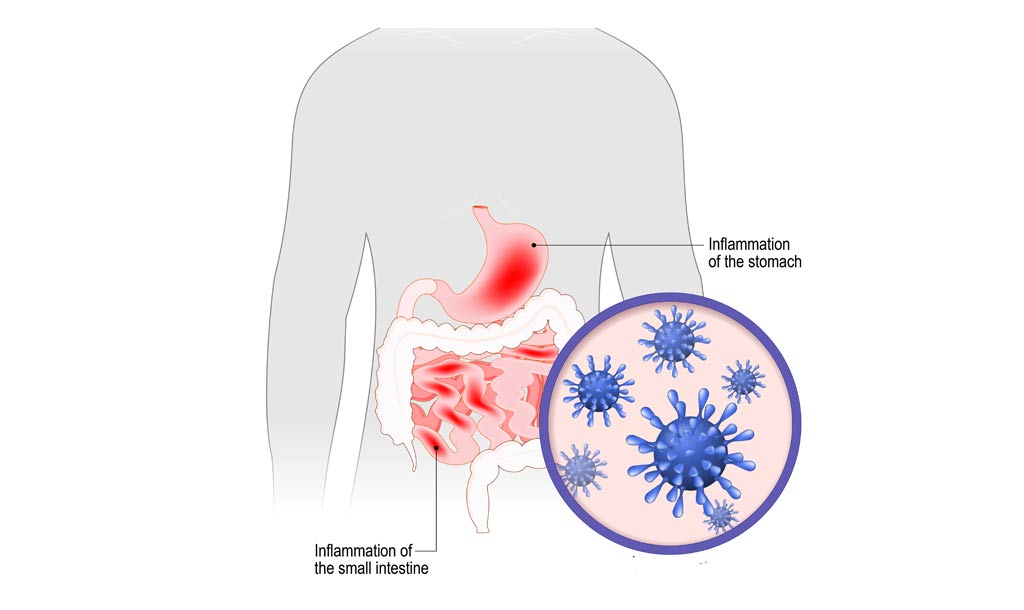After a long work week, many people want to relax and enjoy a delicious meal prepared for them and maybe take in a movie.
However, just because someone else cooked for you, doesn’t mean you can let your guard down when it comes to food safety. Also, remember that your leftovers are only safe for 2 hours at room temperature and won’t last through a movie.



Food Illness Main Cause – Food Service Workers
Researchers from the consumer watchdog group Center for Science in the Public Interest analyzed data on more than 3,900 solved cases of foodborne illness occurring in the United States over 10 years. The research found that among the cases foodborne illness outbreaks, for which there was a reported source of contamination, 70% were traced back to a sick food-service worker.
- Learn about proper hygiene, cross contamination, cold and hot food safety, foodborne pathogens, and best practices to prevent foodborne illness.
- Food Manager Training & ANSI Certification - $99.00
- Food Handler Training - only $7.00!
- HACCP Training: 16hr/4hr/1hr
- Food Allergy Training - $15.00
- Enter Promo "train10off" at Checkout
Food Safety Observations When Dining Out
Make some basic food safety observations when dining out:
- Check Inspection Scores – Many state health departments make restaurant health inspection scores available on the web. Check the score before going to the restaurant or check when you get there.
- Make Sure the Restaurant Is Clean – Confirm that restaurant tables, floors, and utensils are clean. If not, you may want to take your business elsewhere.
- Check That Your Food Is Cooked Thoroughly – Meat, fish, poultry, and eggs should be cooked thoroughly to kill germs. If food is served undercooked or raw, send it back.
- Properly Handle Your Leftovers – Taking your food to go? Remember to refrigerate within 2 hours of eating out. If food is left in a hot car or temperatures above 90ºF, refrigerate it within 1 hour. Eat leftovers within 3 to 4 days.
- Download Infographic: Protect Yourself When Eating Out [PDF]
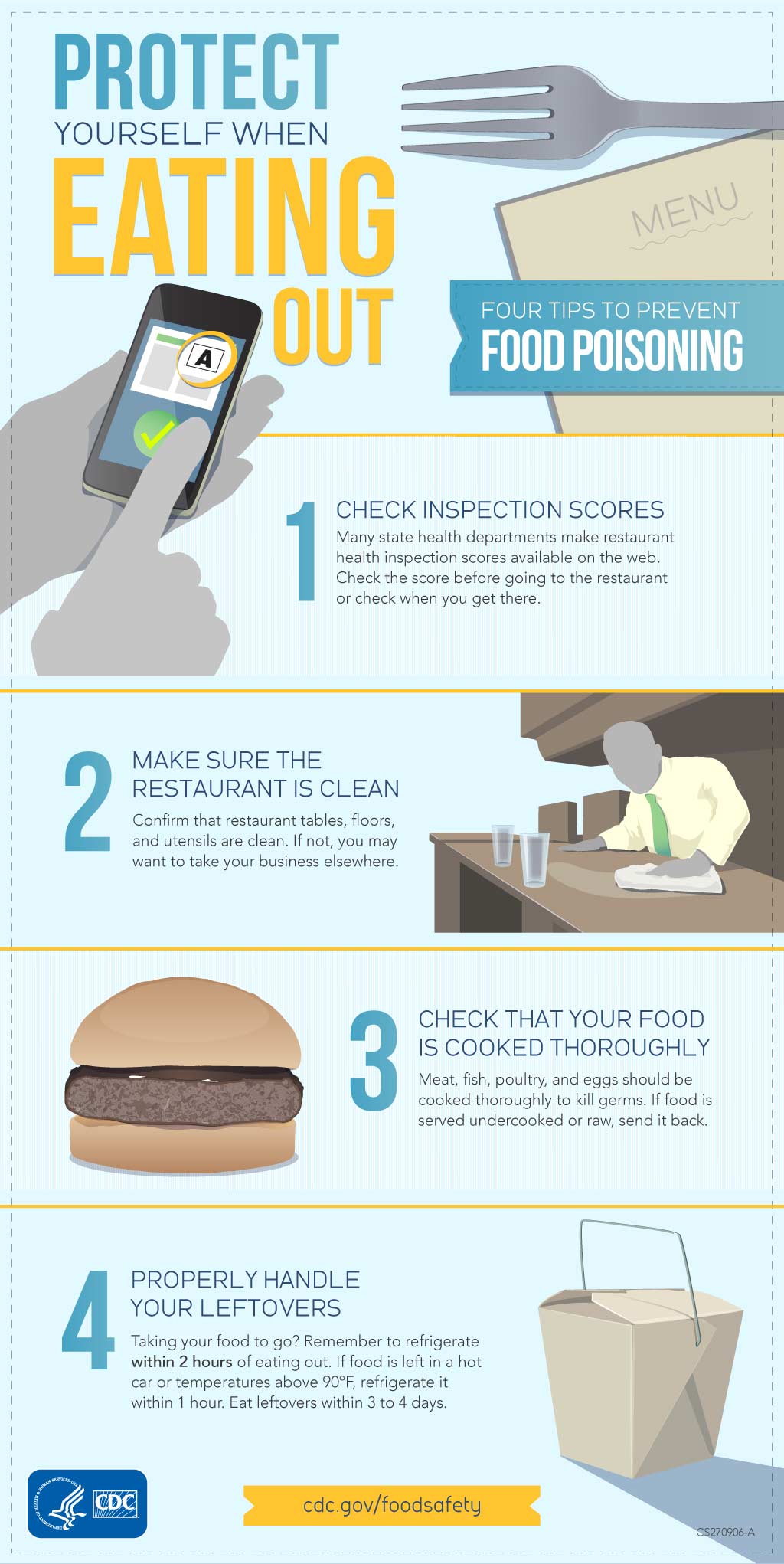


Food Safety Training Essential for Business
Food safety training does not only affect the sales and continued patronage of your establishment, but also public safety.
All food service employees, not just cooks, should be trained on the proper food safety principles and procedures: hosts, servers, managers, food handlers, and more.
Comprehensive food safety training for new and existing restaurant employees will explain the importance of food safety and is the best approach to keeping a business reputation intact and customers coming back.
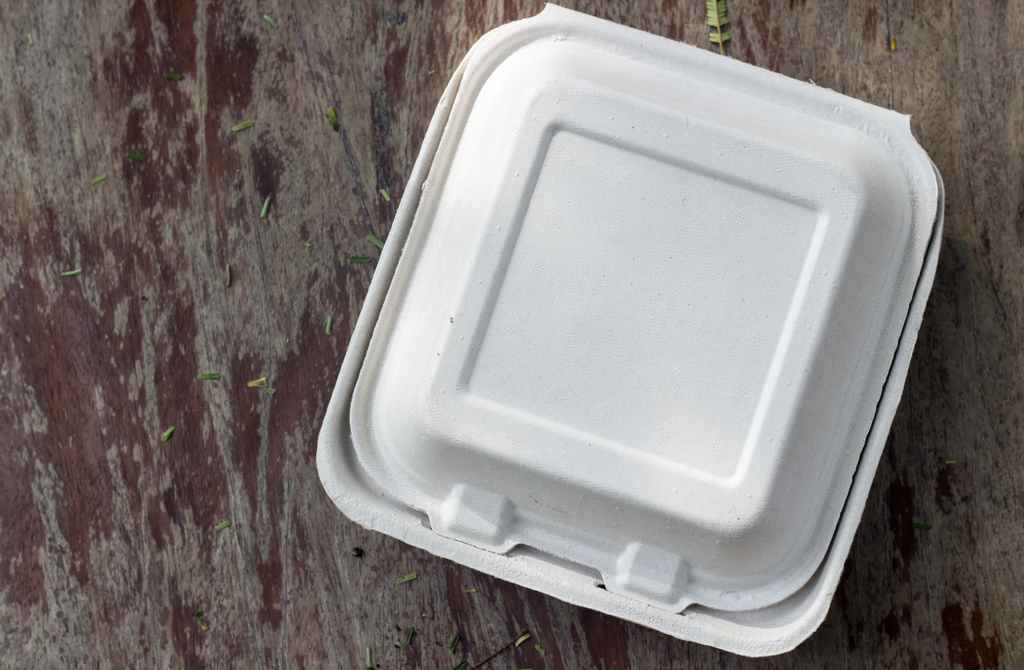


Leftovers – Bacteria Dangers & The “Two-Hour Rule”
Bacteria grows rapidly between the temperatures of 40°F and 140°F, doubling in number in as little as 20 minutes. This range of temperatures is called the “Danger Zone.”
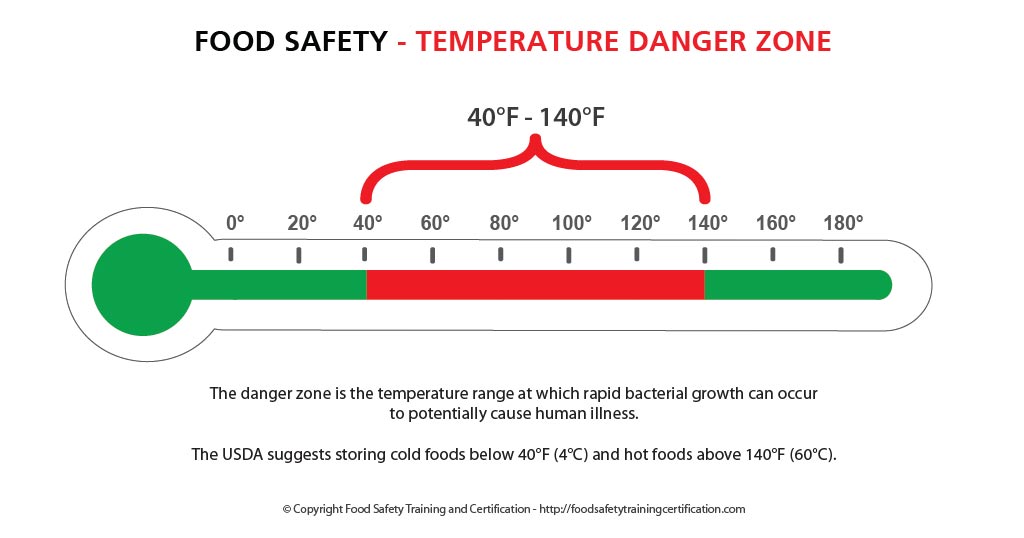


The absolute maximum time for leaving prepared foods at room temperature is 2 hours—including time for preparation, serving and eating.
Discard any perishable foods left at room temperature longer than 2 hours. If you are eating outdoors at a picnic or cookout where temperatures are over 90°F, discard foods after 1 hour.
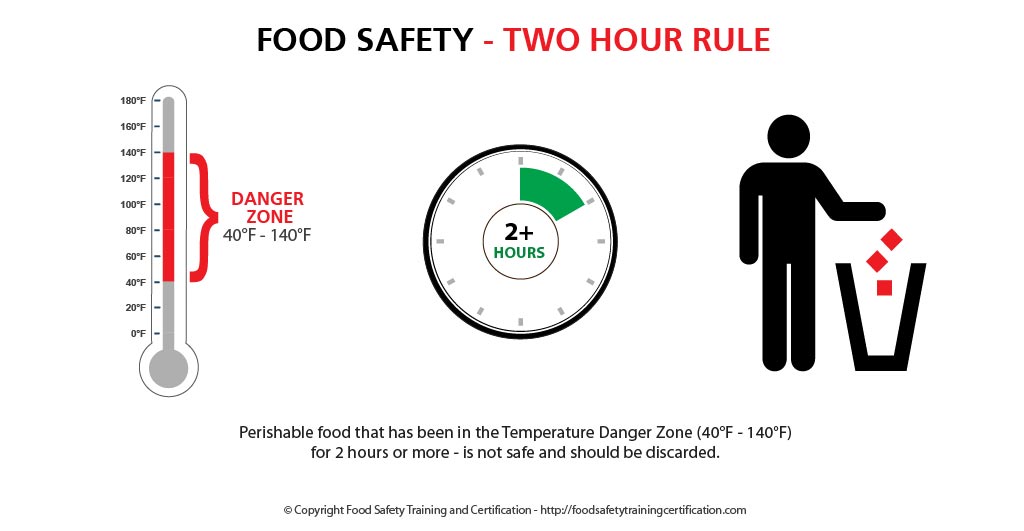


Foodborne Illness Symptoms
- Common symptoms of foodborne illness are diarrhea and/or vomiting, typically lasting 1 to 7 days. Other symptoms might include abdominal cramps, nausea, fever, joint/back aches, and fatigue.
- What some people call the “stomach flu” may actually be a foodborne illness caused by a pathogen (i.e., virus, bacteria, or parasite) in contaminated food or drink.
- The incubation period (the time between exposure to the pathogen and onset of symptoms) can range from several hours to 1 week.
